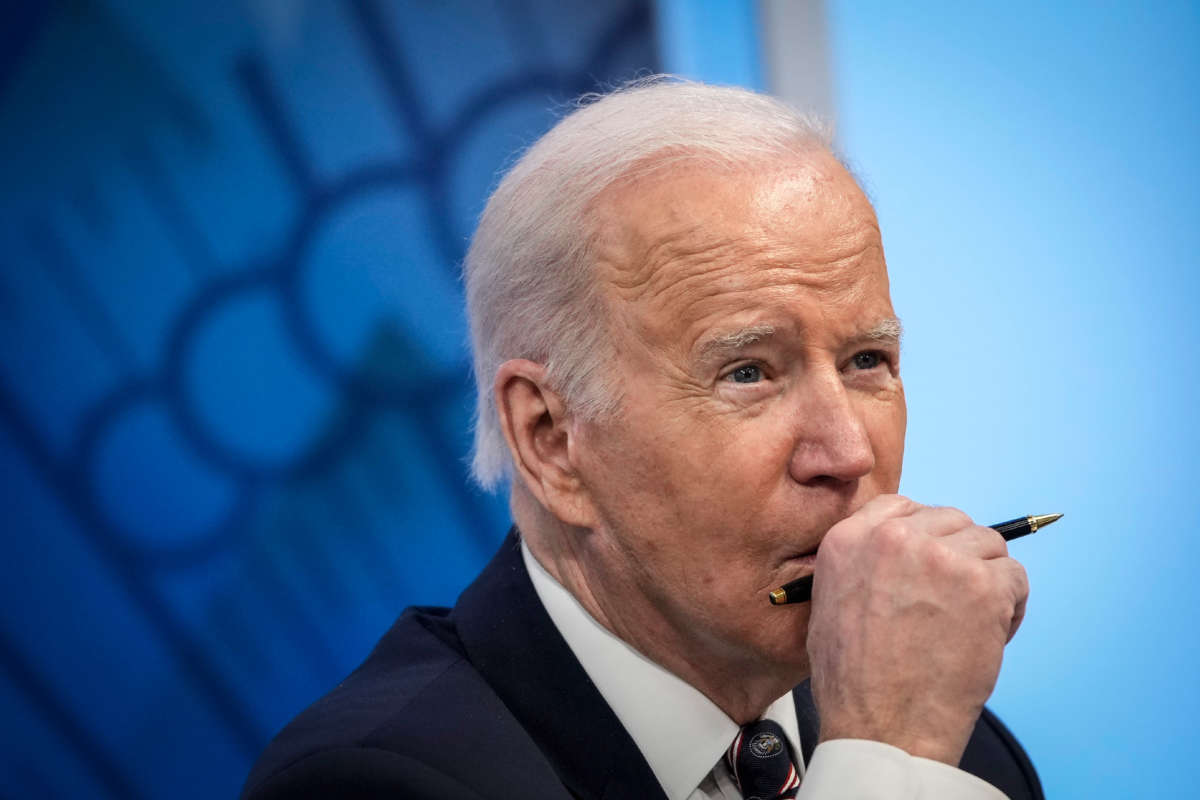Honest, paywall-free news is rare. Please support our boldly independent journalism with a donation of any size.
Last week, a top White House official said that the Biden administration is considering extending the student loan payment freeze, which is set to expire on May 1, for a second time — and suggested that the administration may cancel some portion of student debt before payments resume.
In an interview on the podcast Pod Save America, White House Chief of Staff Ron Klain said, “the president is going to look at what we should do on student debt before the pause expires, or he’ll extend the pause.”
Klain appeared to be proud of the current student loan payment pause, boasting that Joe Biden “is the only president in history where no one’s paid on [sic] their student loans for the entirety of his presidency.” He then suggested that the administration will be considering whether or not to cancel student debt before the payments resume.
Activists have been ramping up pressure on Biden to take action on the student loan crisis. The Debt Collective is planning a day of action in April, and announced last week that it will be launching a campaign for a widespread debt strike if payments start again in May. The organization is encouraging people to pay $0 a month or as close to it as possible, which most debtors were already doing before the pandemic, the activists say.
“If President Biden resumes illegitimate student debt payments in May, we will facilitate as many student debtors as possible to safely pay $0 a month to the Department of Education,” Debt Collective co-founder Astra Taylor said in a statement.
“Whether it’s filing a borrower defense or enrolling in an income driven repayment plan, we are politicizing our refusal to pay as part of our escalation on President Biden,” Taylor continued. “He has the authority to cancel all federal student debt with the flick of a pen. He can end this manufactured crisis today.”
Progressive and Democratic lawmakers have repeatedly asked Biden to take action on student debt. Last month, Sen. Elizabeth Warren (D-Massachusetts) sent a letter to Education Secretary Miguel Cardona expressing concern over restarting student loan payments. She wrote that there may be widespread communication issues between borrowers and loan servicers about the end of the freeze.
Restarting student loan payments will also be a huge financial burden for many borrowers. Polling has found that 37 percent of borrowers say that they’re “not at all confident” about their ability to make their payments when they restart in May. Nearly two thirds of borrowers said that they would have to make “major changes” to their finances when payments restart, which could be harmful to the economy and middle- and lower-income families.
Meanwhile, the payment pause is vastly popular, with 82 percent support from student debt holders, the Student Borrower Protection Center and Data for Progress found.
Biden promised to cancel up to $10,000 of student loans per borrower on the campaign trail, and lawmakers have been urging him to cancel up to $50,000 per person or wipe out student debt altogether. Last month, Rep. Alexandria Ocasio-Cortez (D-New York) said that the issue should be a top priority for Biden and that inaction could cost Democrats dearly in the midterm elections.
But Biden has so far been reluctant to take meaningful action; White House Press Secretary Jen Psaki has even said that restarting student loans is a priority for the administration.
Klain said in an interview last April that the administration would be releasing a memo on the legality of canceling student debt through executive action in the days after the interview. But that memo was never released, and the Debt Collective had to file a Freedom of Information Act request in order to confirm that the memo – which was completely redacted when it was sent to the activists – had existed for months but had been covered up by the administration.
Media that fights fascism
Truthout is funded almost entirely by readers — that’s why we can speak truth to power and cut against the mainstream narrative. But independent journalists at Truthout face mounting political repression under Trump.
We rely on your support to survive McCarthyist censorship. Please make a tax-deductible one-time or monthly donation.
